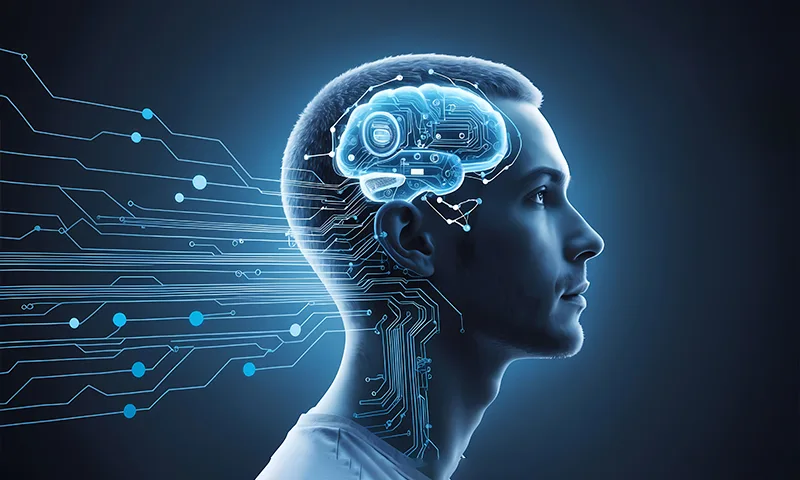How Cloud Computing is Changing the World of Data Security
Cloud computing development has changed drastically the way businesses and individuals save and secure their data. Therefore, it means that cloud-based security has become crucial as businesses are abandoning traditional on-site methods of managing their data. However, what are the revolutionizing impacts of cloud computing on data security? This article will explore this transformative association between cloud technology and the field of data protection.
The Soaring of Cloud Computing
Outsourcing data storage and computational tasks to third party providers was how cloud computing began as a method for firms to save money. The present, on the other hand, is a time when the cloud has transformed into an essential component of contemporary information technology framework characterized by versatility, scalability and dependability. This means that organizations do not have to maintain costly server farms anymore; they can rely on cloud service providers ranging from simple storage to sophisticated data analysis. Nonetheless, this comfort brings along an important concern regarding the confidentiality of information.
Cloud Security vs. Traditional Security: The Paradigm Shift in IT Security Models
The move from traditional on-premises to cloud-based security methodologies is one of the most significant changes brought by cloud computing. Conventional security measures mainly relied on firewalls, antivirus software, and physical access control systems for data protection. However, cloud security demands a fresh approach integrating aspects such as data encryption, proportionate identity management and adherence with industry standards. Furthermore, cloud providers have provided automated form of securitizing which aids enterprises maintain their high threshold in terms of safeguarding themselves.
Data Encryption: The First Line of Defense
As soon as your data enters the cloud, it must be encrypted. Cloud computing vendors offer better encryption methods which protect both data at rest and that in transit. This means that even if somebody intercepts your data during transit, without the right encryption keys it cannot be read. By utilizing new forms of encryption, companies are able to securely keep private information on the cloud without any need for concerns about it being compromised.
Multi-Factor Authentication and Access Control
Cloud computing has improved access control mechanisms making it hard for unauthorized individuals to get sensitive data. Quite often MFA has been adopted as an industry standard in cloud environments instead of passwords alone; therefore, apart from using your password, you are required to provide some other form of identity verification e.g fingerprints or one time codes in some cases. Consequently thus ensuring that despite the fact that hackers may obtain your passphrase they will not be able to log into your account since they do not have this second layer of verification.
Automation and AI in Cloud Security
The incorporation of artificial intelligence (AI) and automation in security systems is one of the most exciting developments in cloud computing. AI-driven tools can automatically detect potential security threats, flag unusual activity, and respond to incidents in real-time. This proactive approach makes it easier for businesses to mitigate cybersecurity risks before they escalate into major issues.
Cloud Compliance and Regulation
Data protection is not just about technology but also about compliance with laws and regulations. Cloud service providers have adopted stringent protocols to ensure that they comply with various international standards such as GDPR (General Data Protection Regulation), HIPAA (Health Insurance Portability and Accountability Act), and ISO/IEC 27001. These regulations are in place to guarantee that cloud providers maintain a high level of security and data privacy for their clients.
Disaster Recovery in the Cloud
Another significant advantage of cloud computing is its disaster recovery capabilities. Traditional data recovery methods could be costly and time-consuming, but cloud-based disaster recovery allows businesses to quickly restore their data from backups in the event of an outage or cyberattack. Cloud providers often have redundant systems and backup solutions in place, ensuring that data can be restored rapidly and efficiently.
The Challenge of Shared Responsibility
Although cloud providers are responsible for maintaining the infrastructure’s security, the shared responsibility model means that clients also have a role to play in protecting their data. This includes managing permissions, ensuring compliance, and using the security tools provided by the cloud provider. While the cloud simplifies many aspects of security, it doesn’t eliminate the need for organizations to be vigilant and proactive.
Current Developments in Cloud Security
Quantum encryption, zero trust security models, and blockchain technologies are going to dominate the future of cloud security. With these new technologies in place, more secure means of keeping data in the cloud will become available, thus rendering it quite resilient to existing threats. This will provide firms with an upper hand over cyber-criminals, who will be forced out of business since they can no longer hack sensitive customer information.
Conclusion
Cloud computing has come to transform the face of data security completely by offering new chances and difficulties at the same time. Encryption innovation improvements, AI-led security instruments and disaster recovery among others, have made businesses utilize cloud for stronger shields against their sensitive information. On this note however it is important to note that there is a shared responsibility when it comes to cloud security as users need to remain alert alongside cloud providers. Furthermore as much as we see advancements happening in technology these days so will our strategies for protecting data evolve in this digital era where everything happens online.












